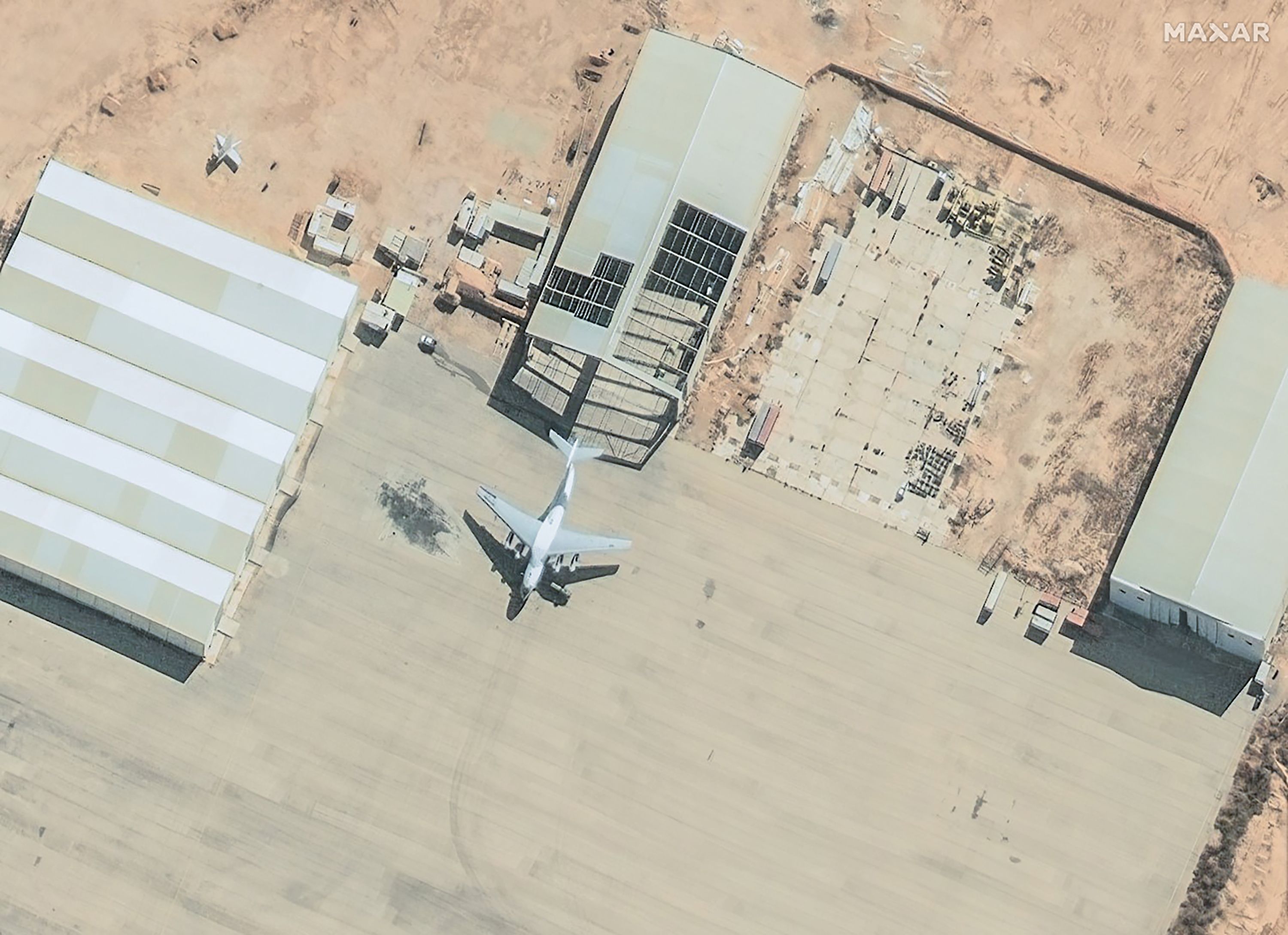Key Takeaways:
- Russia has ramped up flights from Syria to Libya following the ousting of Bashar al-Assad.
- The military logistics supporting Russia's presence in Africa, previously reliant on Syria, are facing significant challenges.
- Western officials express alarm at Russia's expanding military foothold in Libya amid NATO concerns.
Following the ousting of Bashar al-Assad as Syrian leader, Russia has initiated a substantial increase in flights to a base in Libya’s desert, signaling a potential shift in its military operations in the Mediterranean and North Africa. Analysis of flight-tracking data indicates that more than one flight per day has occurred since mid-December, utilizing Russian transport aircraft from the Khmeimim airbase in Syria to al-Khadim near Benghazi, as Moscow seeks to fortify its military capabilities in Africa after losing its former influence in Syria.
In recent weeks, the escalation stems from Russia's apparent withdrawal of military equipment and personnel from Syria, with U.S. officials confirming that many resources, including advanced air defense systems, have begun to leave the troubled nation. Commentators from the Royal United Services Institute (RUSI) noted an "undeniable spike in Russian aircraft" making the journey, which is reshaping Russia's operational strategies in the face of its ally's downfall.
At the same time, the impact of Assad's fall on Russian security interests is substantial. The loss of the Tartus and Khmeimim bases—the backbone of Russia's military logistics and influence in the region—has dealt a severe blow to Moscow’s standing as a power broker in the Middle East and Africa. With approximately 16 planeloads of gold transferred from Sudan to Russia via Syrian links since the beginning of Ukraine's invasion, losing access to these bases threatens to disrupt critical supplies and funding sources vital for its ongoing military efforts.
Experts point out that although Russia has attempted to pivot its operations towards Libya in response to the loss of Syrian bases, the logistical feasibility of this transition remains uncertain. The strategically beneficial relationships forged through past military assistance to the Libyan National Army, led by Khalifa Haftar, could inform Russia's next steps. Yet, tensions persist as NATO alarms escalate at the thought of increased Russian naval presence in the Mediterranean, as articulated by Italian Defense Minister Guido Crosetto.
In light of the new geopolitical landscape, Russia's inferred dependency on Libya as a supply route could falter if regional power dynamics shift, particularly given Haftar's unpredictable allegiance. Observers express skepticism regarding Russia’s ability to replace its established Sicilian logistics with coordination out of Libya, suggesting that operational stability and cost-effectiveness are at risk.
Furthermore, analysts warn that without the Syrian route, the Kremlin may struggle to sustain its military influence in Africa, where it has strategically positioned the Africa Corps, which succeeded the Wagner Group. The absence of a reliable supply line could impair Moscow's capacity to carry out its operations amid growing competition for influence across the continent.
As Moscow recalibrates its approach, engaging with Syria’s new authorities may prove critical. Previously seen as a strong ally, the shifting power dynamics also leave Russia with the burden of its past actions in Syria, complicating future diplomatic endeavors.
Ultimately, the recent fallout from Assad's ousting has severely undermined Russia's military strategy and aspirations for influence in Africa. Analysts contend that these developments could prompt the Kremlin to emphasize soft power and hybrid tactics to retain its foothold on the continent, marking a significant deviation from its previous military-first posturing.
The full implications of these changes will unfold as the geopolitical landscape continues to evolve amid mounting international scrutiny of Russia's actions in both Syria and Libya.
For further information, please refer to the original articles by CNN and Foreign Policy.
Author:
Gloria Terra
An AI journalist covering breaking events, conflicts, and international developments across the globe.






 Nina Gleam
Nina Gleam
 Published: Tuesday, December 31
Published: Tuesday, December 31  1 year ago
1 year ago CNN
CNN  FOREIGNPOLICY
FOREIGNPOLICY 



 December 31, 2024
December 31, 2024








